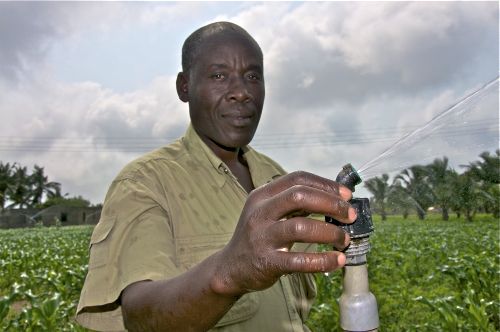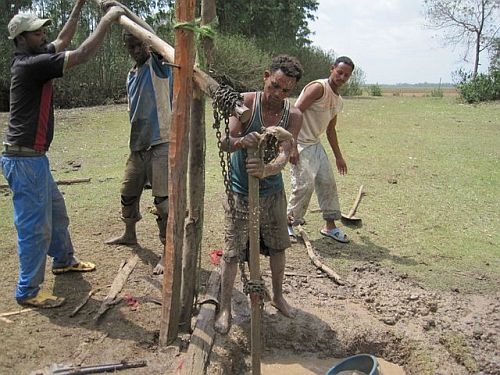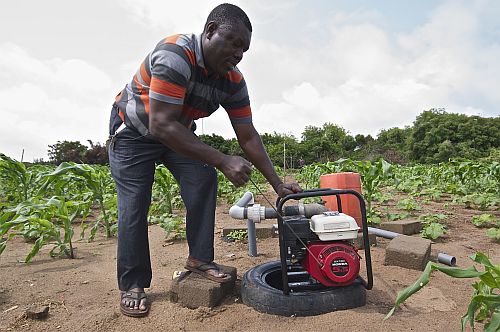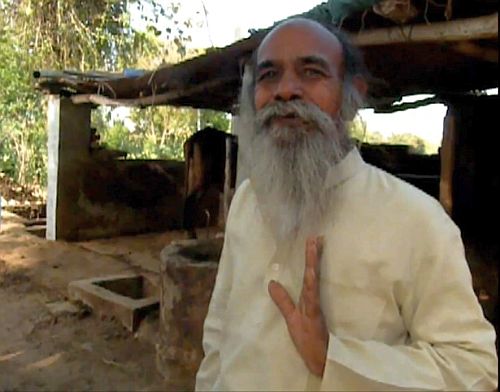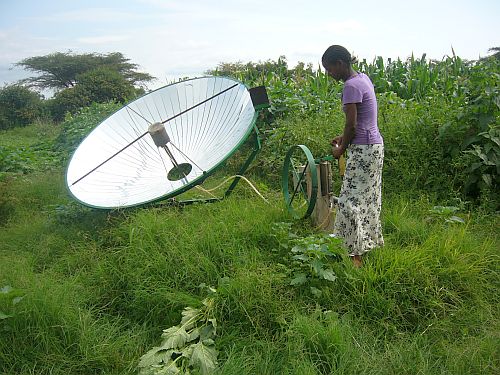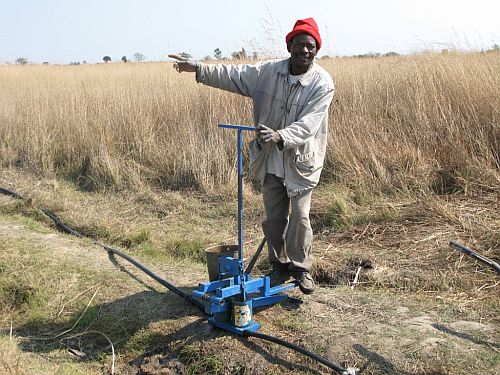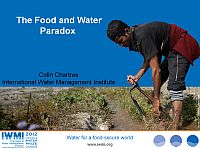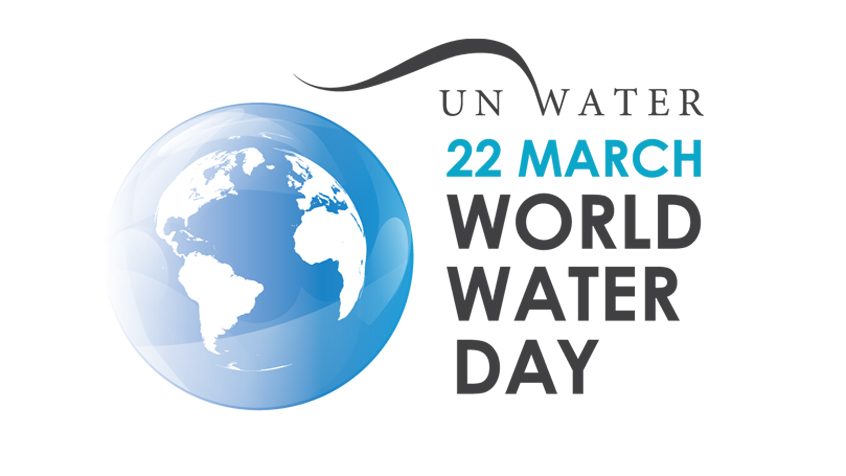
Farmer-led irrigation schemes could transform food security in sub-Saharan Africa, South Asia
Study shows potential for smallholder water management innovations to boost crop yields
and household revenue by tens of billions of US dollars
New research sheds light on huge potential of farmer-led innovation in water solutions. Results suggest that water management investment priorities should be reassessed to boost global food security and poverty alleviation.
Media release:
Farmer-led irrigation schemes could alter food security in sub-Saharan Africa, South Asia
Synthesis Report of the AgWater Solutions Project:
Water for wealth and food security: Supporting farmer-driven investments in agricultural water management
What the farmers said
IWMI receives the 2012 Stockholm Water Prize
The Stockholm International Water Institute announced that the International Water Management Institute (IWMI) is the 2012 Stockholm Water Prize Laureate. Speaking at a ceremony in Stockholm today, the awarding committee cited IWMI’s extraordinary contribution to the development of “new policies and investments in agriculture that have not only enabled more productive use of water, but have enhanced food security, economic development and environmental health around the world.”
At the award ceremony, Colin Chartres, Director General of IWMI, accepted the prize from King Carl XVI Gustaf of Sweden on behalf of the institution.
Presentation: The Food and Water Paradox (Colin Chartres)
Stockholm launch of new program on Water, Land and Ecosystems
The CGIAR Research Program on Water, Land and Ecosystems will be holding an official launch event at Stockholm Water Week on Tuesday, August 28 at 5.30 pm at the IWMI-CGIAR booth. The event will be an informal opportunity to socialize and learn more about the program. In addition, you can learn more about the program through talking with the Program Director, Simon Cook, and other senior researchers.
The CGIAR Research Program on Water, Land and Ecosystems, one of CGIAR’s most ambitious research programs to date is a ten year commitment to bring about a radical transformation in the way land, water and natural systems are managed. It is one of the largest programs with 14 partners, including FAO and is being led by the International Water Management Institute, which has just been named this year’s Stockholm Water Prize Laureate.
Investment Scenario Modeling Tool
As part of this research, an investment tool was developed by scientists at the International Food Policy Research Institute (IFPRI), which allows investors to compare the potential reach and income generation of smallholder agricultural water management investments across sub-Saharan Africa and South Asia. The analysis underlying the scenarios is based on an integrated modeling system that combines geographic (GIS) data analysis, biophysical and economic predictive modeling, and crop mix optimization tools.
The Agricultural Water Management Solutions Project (AWM Solutions) has identified a variety of small-holder agricultural water management interventions (AWM Regional Mapping ) that have a high potential to improve the food security and livelihoods of the rural poor in sub-Saharan Africa and South Asia. The study results have now been made available online through the Investment Visualizer tool.


